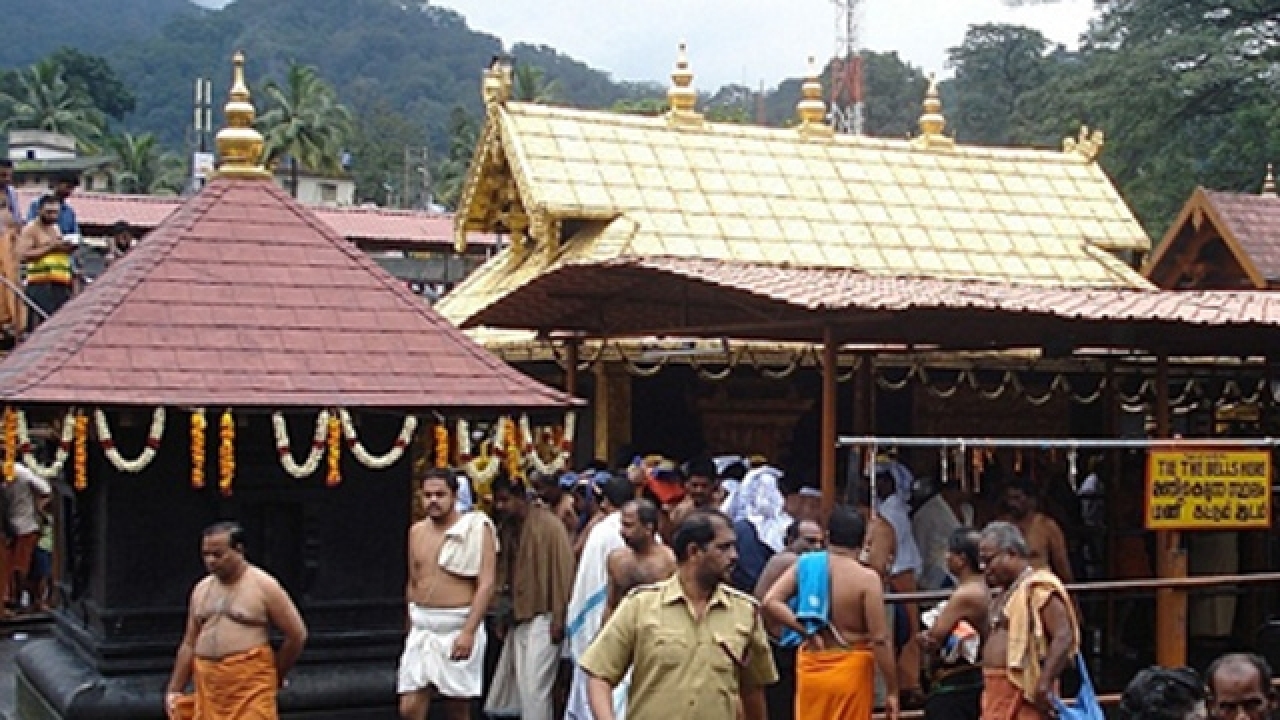
What led to the review petitions on the Sabarimala temple case
In a landmark judgement delivered last year, the Supreme Court had allowed entry of women between the ages of 10 and 50 into Sabarimala temple. This was challenged by a bunch of petitioners who sought review of the decision.

In a landmark judgement delivered last year, the Supreme Court had allowed entry of women between the ages of 10 and 50 into Sabarimala temple. This was challenged by a bunch of petitioners who sought review of the decision. They have even questioned the authority of the apex court for intervening with a ‘centuries-old’ belief of people.
The constitution Bench comprising of Chief Justice Ranjan Gogoi, and Justices AM Khanwilkar, RF Nariman, DY Chandrchud and Indu Malhotra had reserved orders on review petitions in the case after a full day hearing on February 6, 2019.
Along with the petition filed by the Travancore Devaswom Board (TDB), Pandalam royal family, and groups of devotees against the SC September 28, 2018 judgement, there are around 48 petitions waiting for review.
The petitioners also argued that the court cannot force its views upon people of Kerala and that the order had resulted in disturbance of peace in the state.
K Parasaran, a veteran lawyer representing Nair Service Society (NSS) sought a review on the verdict on the grounds that women weren’t allowed into the temple based on religious faith and character of the deity and not because of gender differentiation.

According to The Hindu, the temple’s chief priest Rajeevaru Kandararu, the main review petitioner, argued that “every devotee has a fundamental right to worship in a temple in a manner which is in sync with the character of the deity.”
“Thanthri [priest] is the father of the deity. Every deity has a character. The Sabarimala deity, unlike in other Ayyappa temples, has the peculiar character of a Naishtika Brahmachari (celibate). The essential religious nature of Sabarimala deity is affirmed and perpetuated every day by the offerings/pujas conducted in the temple. All this rests on this unique character of the deity. Exclusion of women of a certain age is nothing moral or immoral,” senior advocate V. Giri argued for the priest.
Senior advocate AM Singhvi representing former TDB chairman who controls the Sabarimala temple argued that Hinduism is the most diverse religion and cannot be bound by ‘universally ethical’ practices.
Criticising the September 2018 judgment, senior advocate Shekhar Naphade said, the order was more of a mandamus given to a particular religious community, asking them to refrain from following their beliefs.
The Kerala government, however, backed the apex court judgment and said the courts can do away with religious practices that deny fundamental rights like the dignity of women.
Jaideep Gupta, the senior advocate, quoted the Constitution and said, “you will not discriminate or exclude.”
The Judgment
Sabarimala Temple, one of the largest Hindu pilgrimage in Kerala is visited by 50 million devotees every year, had a rule barring women aged between 10 and 50 from entering the temple.
However, on September 28, 2018, the Supreme Court ruled that girls and women would be allowed to enter the temple. The verdict was passed by CJI Dipak Misra lead constitutional bench in 4-1 verdict stating the rule violated the fundamental right to equality and worship.
During the course of the hearing, Justice DY Chandrachud compared the age-old tradition with the concept of untouchability and said it cannot be allowed under the constitution.
“Article 17 certainly applies to untouchability practices in relation to lower castes, but it will also apply to the systemic humiliation, exclusion and subjugation faced by women,” reported PTI.
While all the Justices concurred, Justice Indu Malhotra gave a dissenting verdict. The lone woman judge in the bench, Justice Malhotra, said that issues which have deep religious connotation should not be tinkered with to maintain secular atmosphere in the country.
She was also of the view that courts can only strike down social issues like ‘Sati.’ “The issue in this case not limited to Sabarimala only. It will have far reaching implications for other places of worship.”
However, the CJI said devotion cannot be subjected to discrimination and a patriarchal notion cannot be allowed to trump equality in devotion. “Devotees of Lord Ayyappa do not constitute a separate denomination,” he added.
The CJI said the practice of exclusion of women of 10 to 50 age group cannot be regarded as an essential religious practice and Kerala law denies rights to women on the ground of physiological reasons.
The rule was also not backed by Article 25 and 26 of the Constitution which gives everyone the right to freely profess, practice, and propagates religion subject to public order, morality, and health.
Justice Chandrachud said religion cannot be used as cover to deny rights of worship to women and it is also against human dignity. The rule is a grim shadow of discrimination going on for centuries and stinks of patriarchy, he added.
Devotees of the Lord Ayyappa do not form separate religious denominations, Justice Chandrachud said and added that any custom or religious practice if violates the dignity of women by denying them entry due to her physiology is unconstitutional.
He also added that the popular notion about morality can be offensive to the dignity of others and the exclusion of women because she menstruates is utterly unconstitutional.
Justice Chandrachud held that the exclusion of women is violative of right to liberty, dignity and equality and said banning women of a particular age group is not an essential practice of religion.


